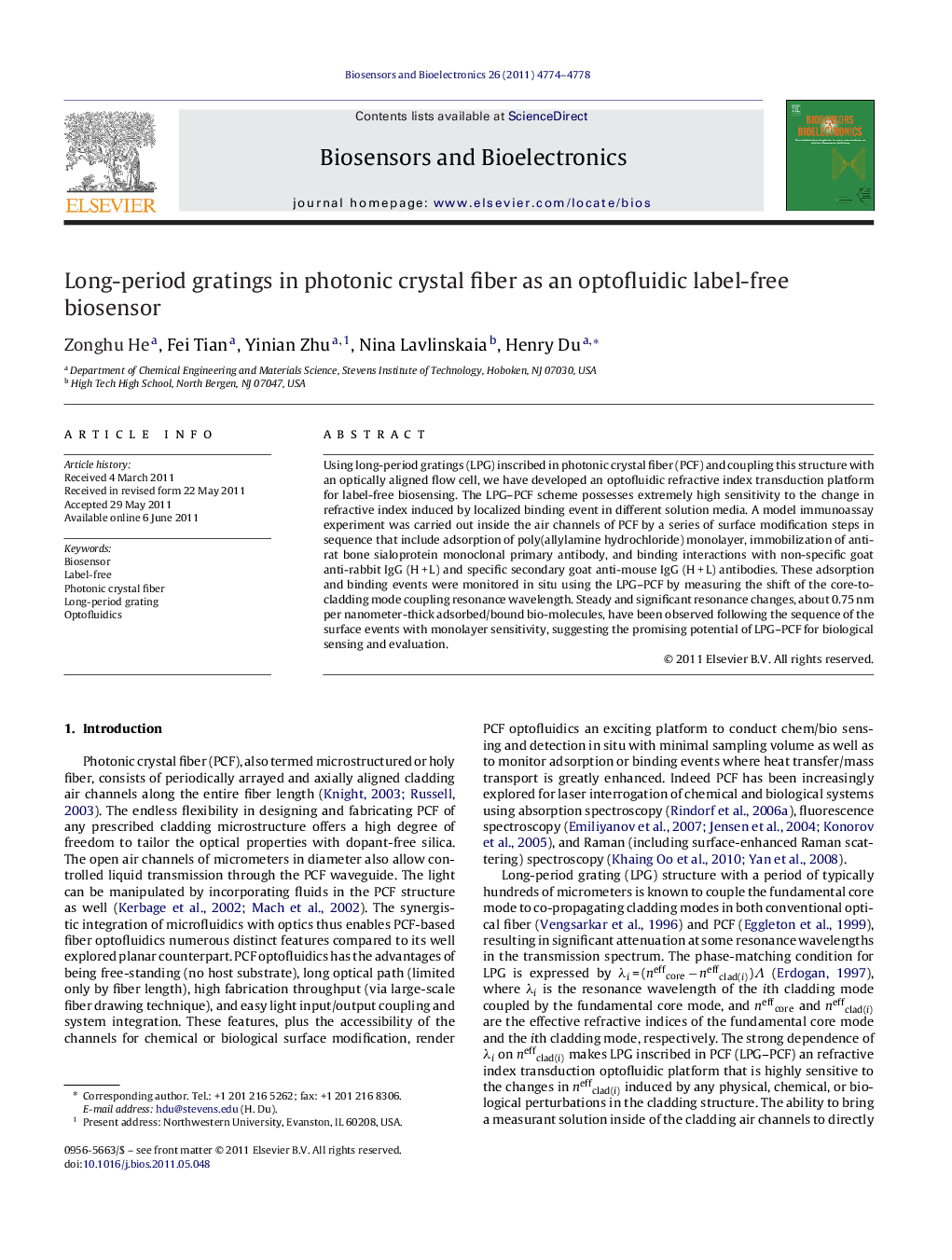| کد مقاله | کد نشریه | سال انتشار | مقاله انگلیسی | نسخه تمام متن |
|---|---|---|---|---|
| 867995 | 909799 | 2011 | 5 صفحه PDF | دانلود رایگان |

Using long-period gratings (LPG) inscribed in photonic crystal fiber (PCF) and coupling this structure with an optically aligned flow cell, we have developed an optofluidic refractive index transduction platform for label-free biosensing. The LPG–PCF scheme possesses extremely high sensitivity to the change in refractive index induced by localized binding event in different solution media. A model immunoassay experiment was carried out inside the air channels of PCF by a series of surface modification steps in sequence that include adsorption of poly(allylamine hydrochloride) monolayer, immobilization of anti-rat bone sialoprotein monoclonal primary antibody, and binding interactions with non-specific goat anti-rabbit IgG (H + L) and specific secondary goat anti-mouse IgG (H + L) antibodies. These adsorption and binding events were monitored in situ using the LPG–PCF by measuring the shift of the core-to-cladding mode coupling resonance wavelength. Steady and significant resonance changes, about 0.75 nm per nanometer-thick adsorbed/bound bio-molecules, have been observed following the sequence of the surface events with monolayer sensitivity, suggesting the promising potential of LPG–PCF for biological sensing and evaluation.
► Long-period grating in photonic crystal fiber is used as index sensing platform.
► The platform has been used as optofluidic label-free biosensor.
► A microfluidic cell is designed to couple light and liquid flow.
► A model immunoassay was used to demonstrate the sensing capability.
► The biosensor can detect the surface binding events with monolayer sensitivity.
Journal: Biosensors and Bioelectronics - Volume 26, Issue 12, 15 August 2011, Pages 4774–4778